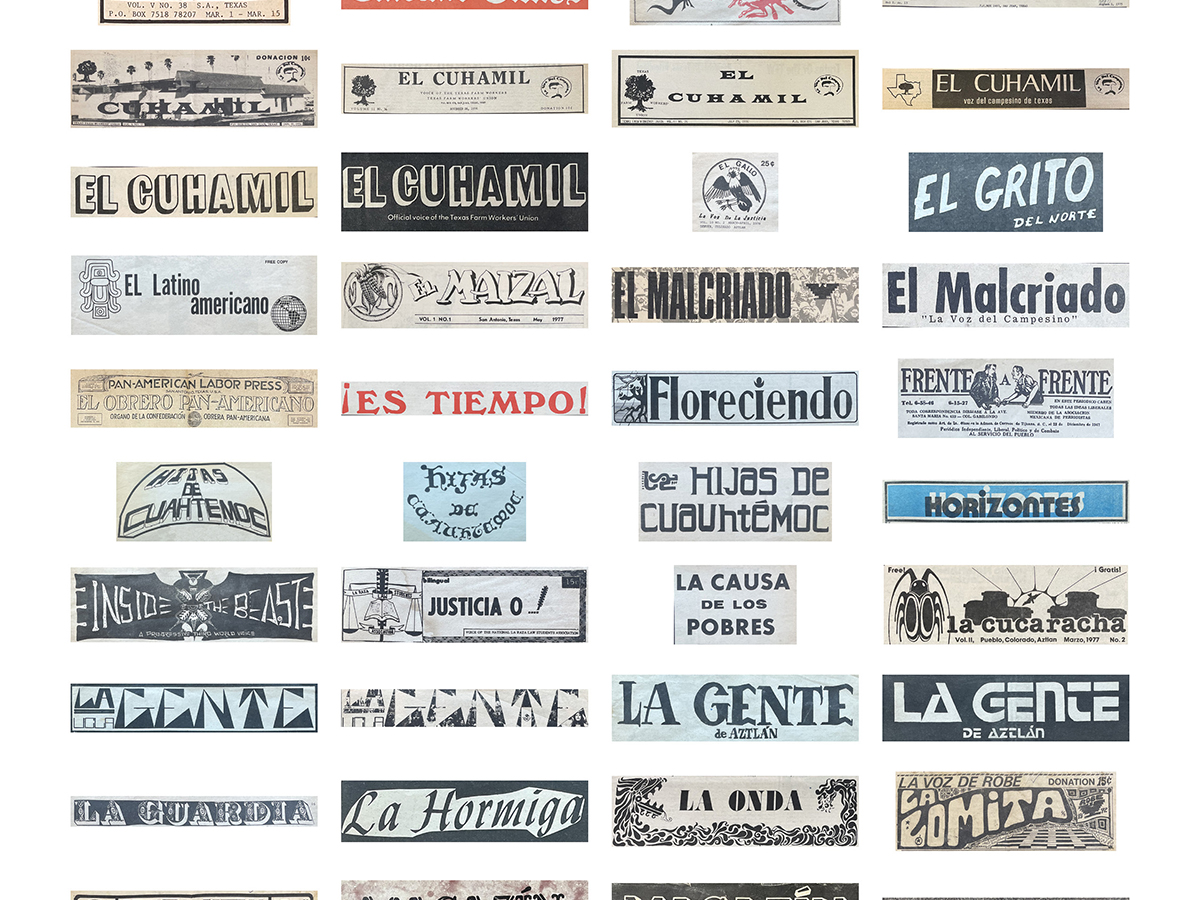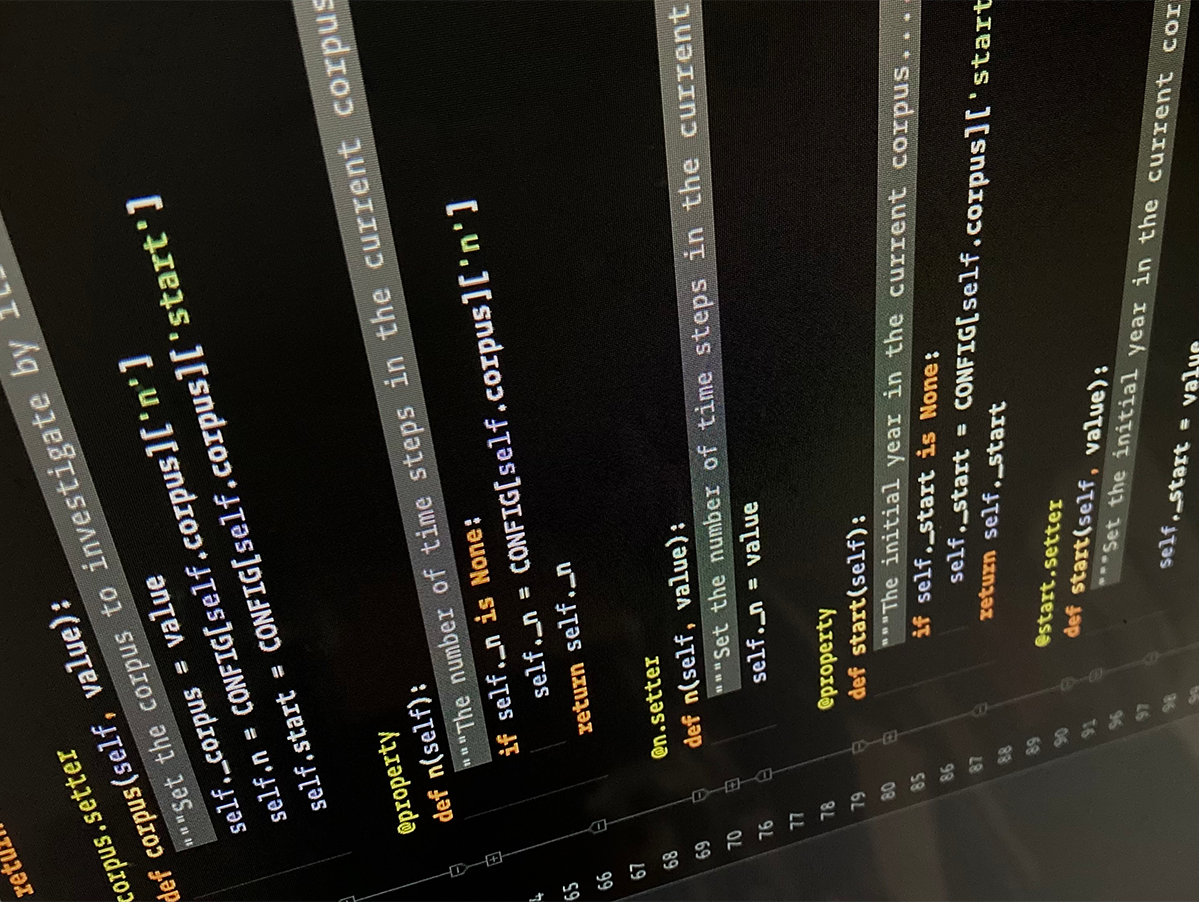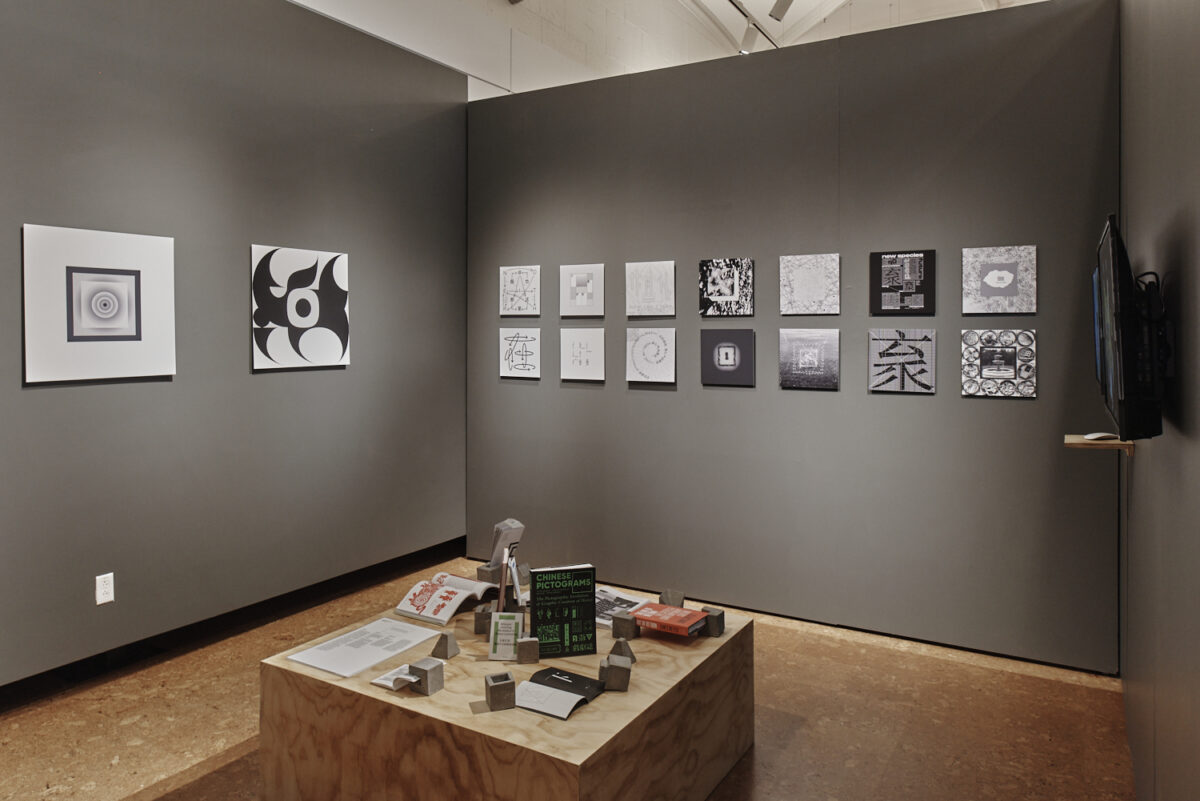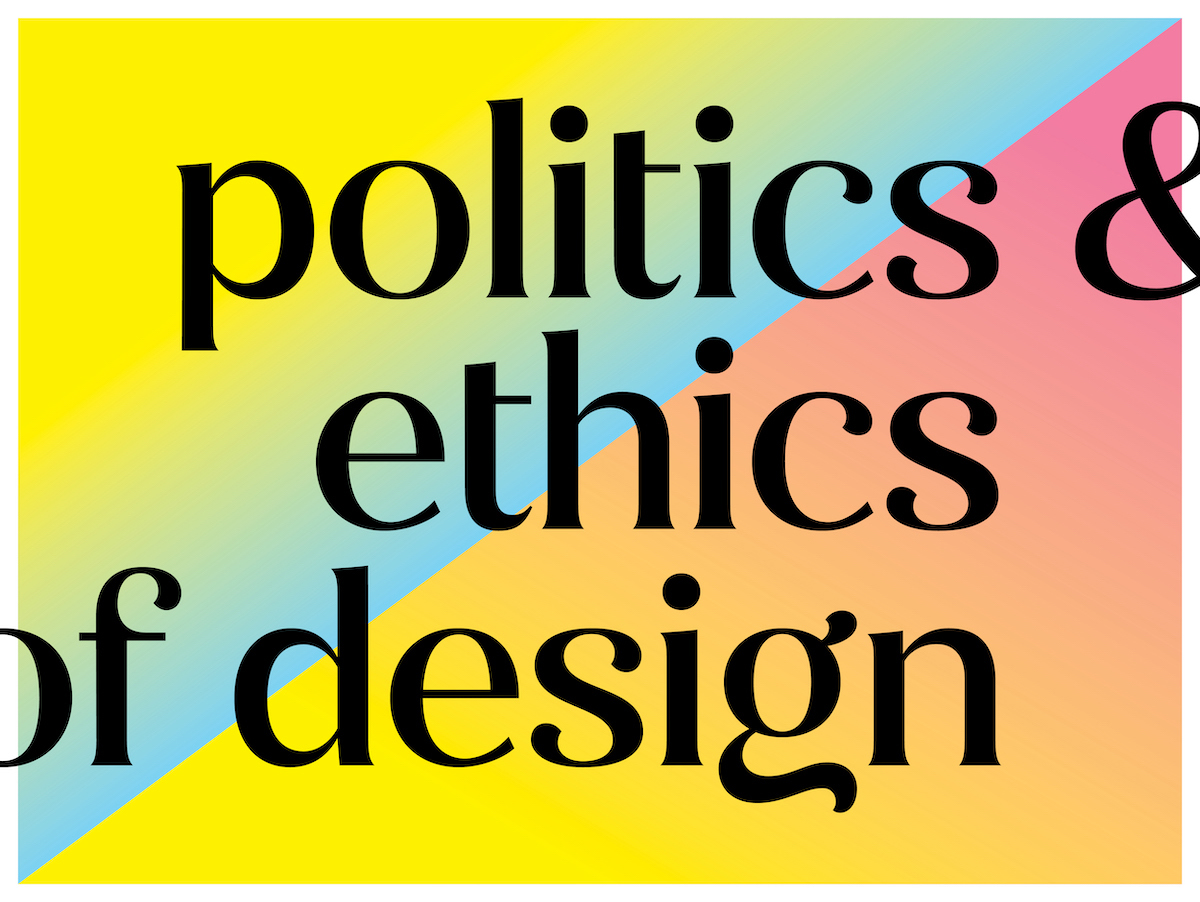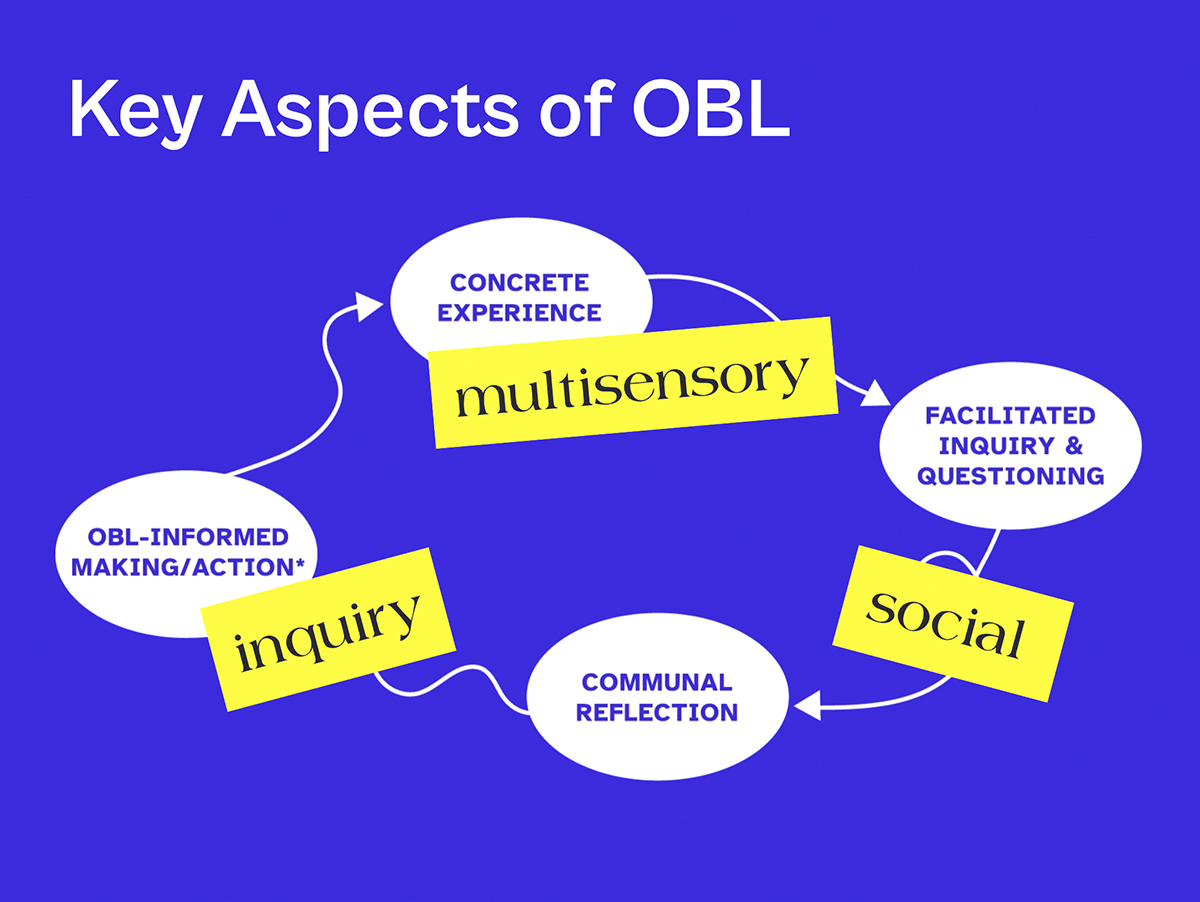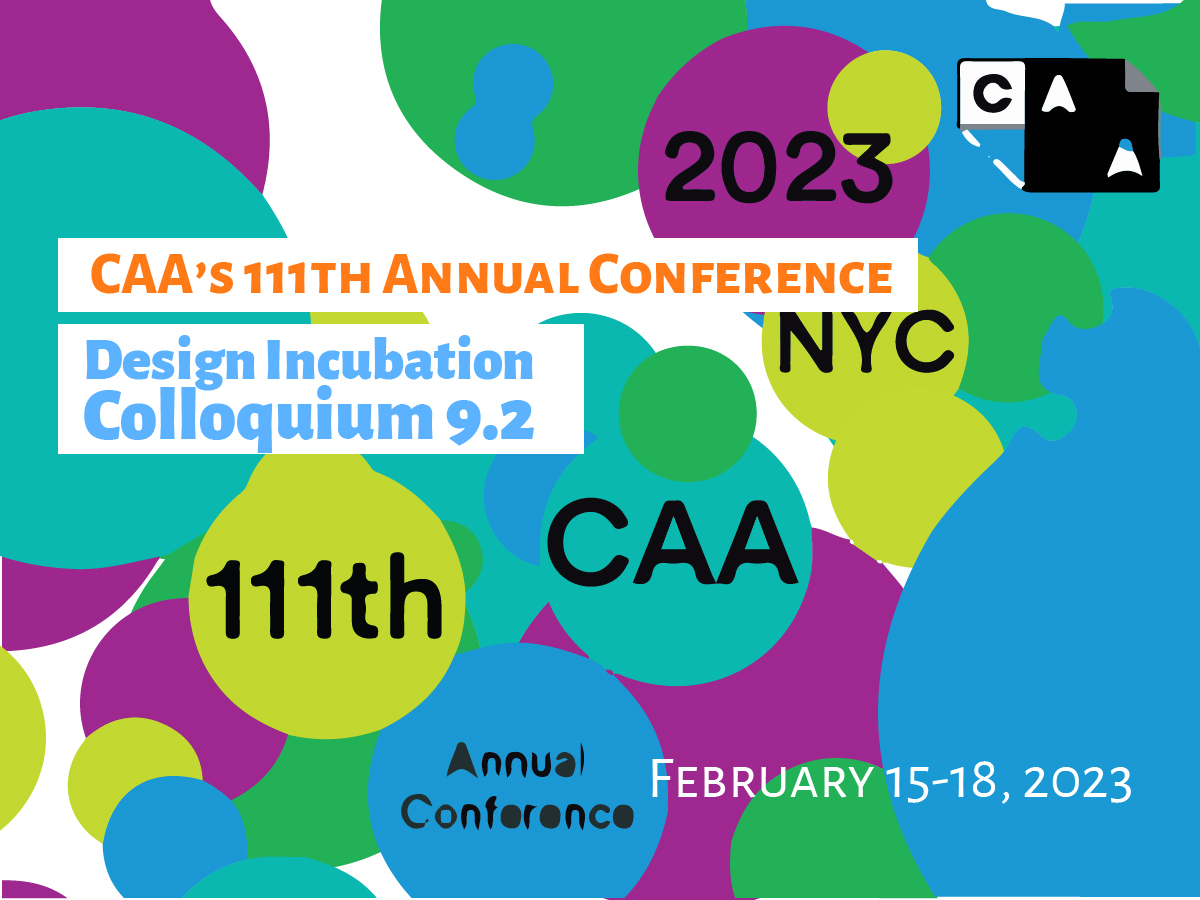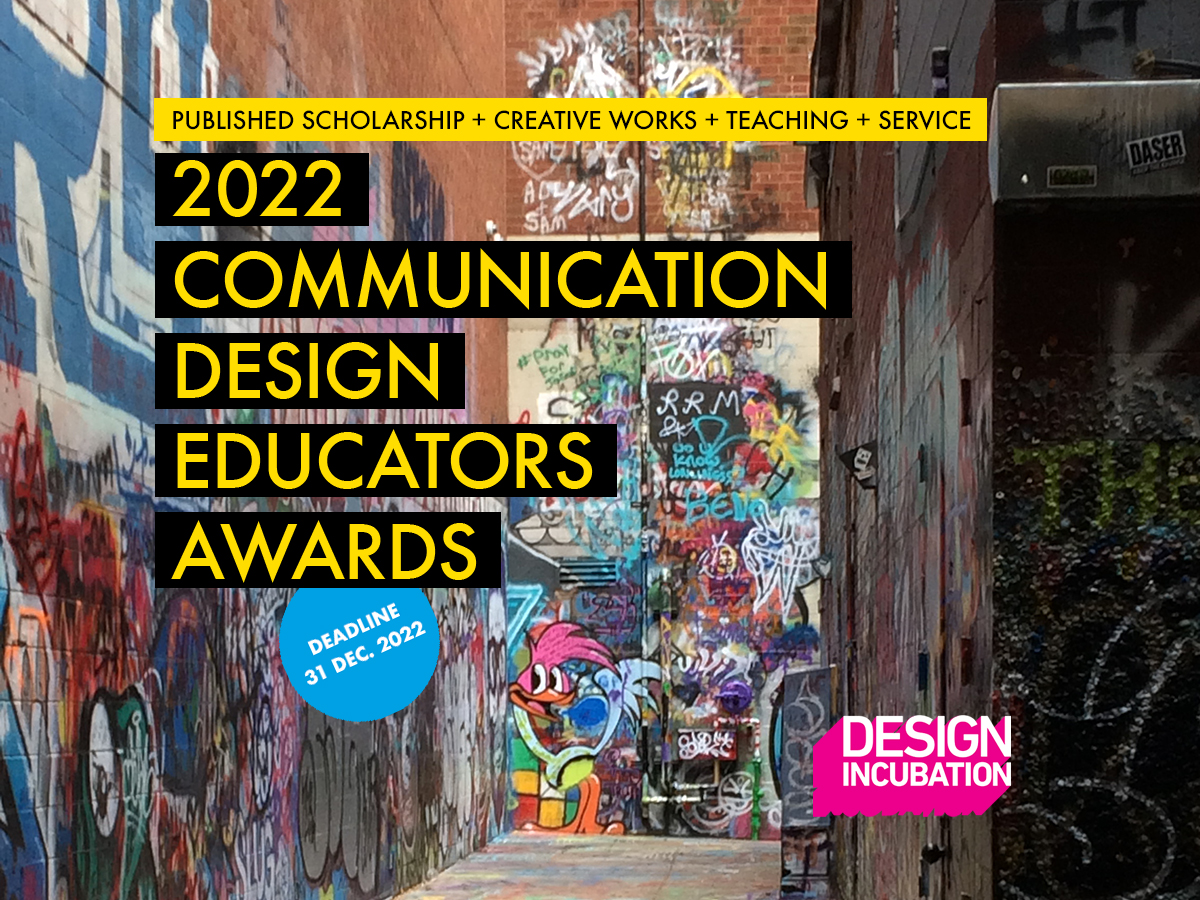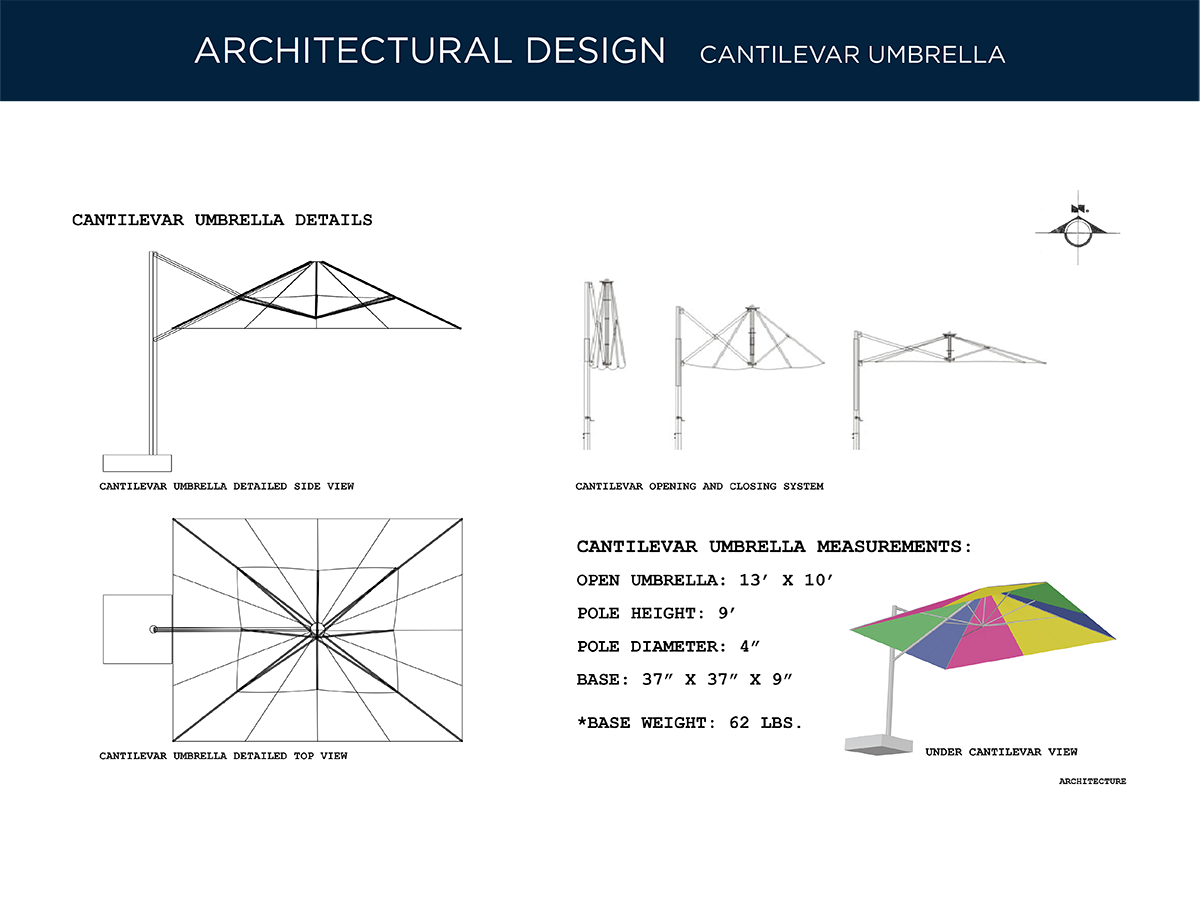Design Incubation announces a call for nominations and entries for the 2022 awards for communication design educators and graduate students in the areas of scholarship, teaching, service. The aim of the awards program is to discover and recognize new scholarship (creative work and publications), teaching, and service in our broad and varied discipline. We hope to expand the design record, promote excellence and share knowledge within the field.
We ask colleagues and mentors to identify outstanding creative work, publications, teaching, and service being created by design educators in the field communication design and to nominate these individuals for an award. Nominations will be accepted until December 31, 2022
Entry Guidelines
Entries will be accepted until December 31, 2022. Nominations are not required to enter in this scholarly competition. Complete the online entry form (https://designincubation.com/design-incubation-awards-competition-entry-form/) with the following:
- Title: Description of project and outcomes (not to exceed 500 words)
- Supporting Materials: (limited to 5-page medium resolution pdf of artwork; web links to websites, videos, other online resources; published documents or visual documents)
- Biography of applicant/s (150 words per applicant)
- Curriculum vitae of applicant/s
- $20 entry fee donation
2022 Jury
Steven McCarthy (Chair), University of Minnesota,
John Bowers, School of the Art Institute of Chicago, Illinois
Maria Rogal, University of Florida, Florida
Kaleena Sales, Tennessee State University
R. Brian Stone, The National University of Singapore
Teal Triggs, Royal College of Art, London
Biographies
JOHN BOWERS
John Bowers is chair of the Visual Communication Design department at the School of the Art Institute of Chicago. Through making, writing, and teaching, he explores issues of individual and collective identity. His making practice repurposes newspapers from public to private record, and billboard paper into forms that address their underlying targeting strategies and have been sold through Printed Matter. He worked as a Senior Identity Designer at Landor (San Francisco) during the dot-com bubble. His professional work has been published in 365: AIGA, Communication Arts, ID, and Graphis. His writing includes “A Lesson from Spirograph,” (Design Observer), Introduction to Two-Dimensional Design: Understanding Form and Function, Second Edition (Wiley), and Visual Communication Design Teaching Strategies, which isposted on the AIGA Educators Community website. He has been a curriculum consultant and visiting designer in the US, Canada, and Sweden.
STEVEN MCCARTHY (CHAIR)
Steven McCarthy is Professor Emeritus of Graphic Design at the University of Minnesota in Minneapolis/St. Paul. He established the Design Incubation Communication Design Educators Awards and chaired the jury from 2016-2018. McCarthy’s teaching, scholarship, and contributions to the discipline include lectures, exhibitions, publications, and grant-funded research on a global scale. His creative work was featured in 125+ exhibitions and he is the author of The Designer As… Author, Producer, Activist, Entrepreneur, Curator and Collaborator: New Models for Communicating (BIS, Amsterdam). From 2014–2017, McCarthy served on the board of directors of the Minnesota Center for Book Arts.
MARIA ROGAL
Maria Rogal is a Professor of Graphic Design and founding director of MFA in Design & Visual Communications at the University of Florida. She is the founder of D4D Lab, an award-winning initiative codesigning with indigenous entrepreneurs and subject matter experts to support autonomy and self-determination. After over a decade working with partners in México, she cofounded Codesigning Equitable Futures to foster respectful collaborations among the university and local community in Gainesville, Florida. She continues to speak and write about social and codesign, recently presenting at Pivot 2020, and co-authored “CoDesigning for Development,” which appears in The Routledge Handbook of Sustainable Design. Her research has been funded by AIGA, Sappi, and Fulbright programs, among others, and her creative design work has been featured in national and international juried exhibitions.
KALEENA SALES
Kaleena Sales is an Associate Professor of Graphic Design and Chair of the Department of Art & Design at Tennessee State University, an HBCU (Historically Black College and University) in Nashville, TN. She is co-host of Design Observer’s The Design of Business | The Business of Design Minisodes podcast with Omari Souza. Her design writing and research centers on Black culture and aesthetics, recently co-authoring the book Extra-Bold: A Feminist, Inclusive, Anti-Racist, Non-Binary Field Guild for Graphic Designers, alongside Ellen Lupton, Farah Kafei, Jennifer Tobias, Josh A. Halstead, Leslie Xia, and Valentina Vergara. Kaleena has a Master’s Degree from VCU Brandcenter, an MFA from Savannah College of Art & Design, and is currently pursuing a Doctor of Design at NC State University.
R. BRIAN STONE
R. Brian Stone is an Associate Professor at The National University of Singapore. His award-winning work and teachings are centered in the areas of motion design, interaction design, information visualization, and user experience.
Professor Stone is the co-founder of the bi-annual MODE Summit, an international conference bringing together motion design educators to present research and discuss the discipline. In addition, he is the co-editor of a collection of essays entitled, The Theory and Practice of Motion Design: Critical Perspectives and Professional Practice published by Routledge.
Prior, to his tenure at NUS, Brian taught at the University of the Arts and The Ohio State University. Apple recognized Professor Stone’s teaching with the Apple Distinguished Educator award. He is also a recipient of the Ratner Distinguished Teaching Award, The Ohio State University Alumni Award for Distinguished Teaching, the Order of Omega Faculty Recognition Award, and the National University of Singapore’s Annual Teaching Excellence Award.
Brian holds a MA and MFA in Design from The Ohio State University and a BFA in Graphic Design from the University of the Arts.
TEAL TRIGGS
Teal Triggs is Professor of Graphic Design and leads on the MPhil/PhD programme in the School of Communication, Royal College of Art, London. As a graphic design historian, critic and educator she has lectured and broadcast widely and her writings have appeared in numerous edited books and international design publications. Triggs’s research focuses on design pedagogy, criticism, self-publishing, and feminism. She is Associate Editor of Design Issues (MIT Press) and was founding Editor-in-Chief of Communication Design (Taylor & Francis/ico-D). Her recent books include: co-editor with Professor Leslie Atzmon of The Graphic Design Reader (Bloomsbury), author of Fanzines (Thames & Hudson)and the children’s book The School of Art (Wide Eyed Editions) which was shortlisted for the ALCS 2016 Educational Writer’s Award. She is Fellow of the Design Research Society, International Society of Typographic Designers and the Royal Society of Arts.
Like this:
Like Loading...
